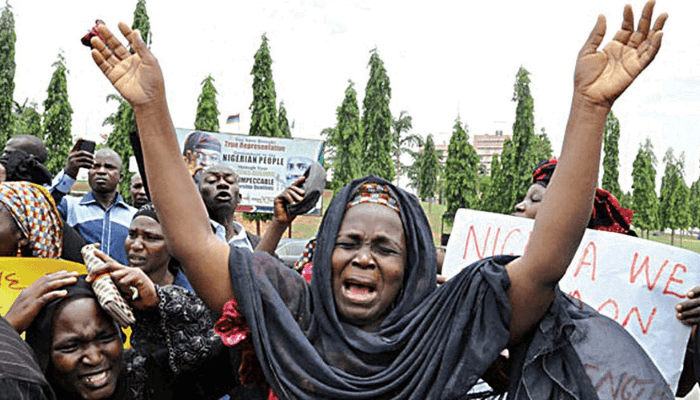Nigeria, Africa’s most populous country, faces numerous human security challenges that threaten the well-being and livelihoods of its people. Challenges with security concerns stem from extremism to banditry to separatist incitement. While the scourge of abductions continues in the rural areas of the north, the activities of secessionist groups such as the Biafra agitation in the southeast and the Yoruba agitation in the southwest have combined to create a complex security situation in the south. are. The current situation in Nigeria is viewed by growing security insecurity, economic instability and social unrest, putting general human security at risk. This article examines the state of human security in rural Nigeria and identifies key challenges and prospects for improvement.
According to the United Nations Development Program UNDP’s National Human Development Report (May 2006), human security generally consists of seven imperatives that stem from economic well-being, food, health, environment, personal, community, and political security. It is said to contain elements. These elements intersect to ensure that the individual is free from fear, deprivation, and humiliation. Within this concept are the challenges we face over time. Economic insecurity in Nigeria is believed to be exacerbated by high inflation, unemployment and poverty, which exacerbate human insecurity. Given the country’s inability to ensure food self-sufficiency, food availability and access, coupled with climate change, are threatened. Health systems face significant funding and infrastructure deficits, impairing access to quality care. Meanwhile, environmental degradation caused by oil exploration, particularly within the Niger Delta region, is impacting the health and livelihoods of local communities. Considering all this, in addition to ethnic and religious conflicts, recurrent clashes between nomads and farmers, as well as ethnic and religious tensions are endangering the integrity of the nation. Strengthening cooperation with border countries and international partners is also central to dismantling transnational criminal networks primarily involved in kidnapping and other illegal activities in the northern core region. Additionally, investments in technology and infrastructure, along with adequate funding and equipment of security personnel, are essential to increase operational efficiency. In addition to addressing pressing security concerns, Nigeria is committed to instilling a culture of security awareness and civic responsibility among its youth, and developing a generation of knowledgeable and engaged citizens who will contribute positively to the national community. By doing so, long-term solutions aimed at addressing the root causes of insecurity must be prioritized. Our commitment to security.
Also read: Northern group calls for community action against insecurity, socio-economic hardship
Having identified these challenges, it is therefore worth noting to consider the prospects for developing basic security principles to alleviate some of these problems. This includes efforts by the Nigerian government to address some of the challenges listed above. The establishment of the Ministry of Humanitarian Affairs, Disaster Management and Social Development demonstrates a commitment to human security. Partnerships with civil society, non-governmental organizations (NGOs) and community-based organizations are critical in providing humanitarian assistance and advocating for policy change. International cooperation and partnerships with international organizations such as the United Nations can strengthen Nigeria’s capacity to address human security challenges in rural areas. Economic insecurity can be reduced by diversifying the economy, such as by investing in agriculture and promoting entrepreneurship. Community-led initiatives can promote social cohesion and address local conflicts, as can grassroots initiatives such as community policing and peacebuilding.
It is the duty of the Nigerian government to integrate human security into national development policies. Strengthen institutional capacity and strengthen the capacity of security agencies, health care providers and social services. Promoting inclusive governance and fostering inclusive decision-making processes to address ethnic and religious tensions are key to uniting the grassroots. Investing in education can also empower citizens to reduce poverty and strengthen economic security. Encourage private sector participation in helping address economic insecurity and food insecurity.
Human security challenges are complex and multifaceted. Addressing these challenges will require a concerted effort by protected people, governments, civil society and international partners, working together towards a common vision of security for success. Masu. In conclusion, a holistic and multifaceted approach that includes effective governance, community engagement, strategic coordination between security agencies, and long-term investments in education and socio-economic development will lead to a more prosperous and completely free of insecurity. , will promote a peaceful and prosperous country.

